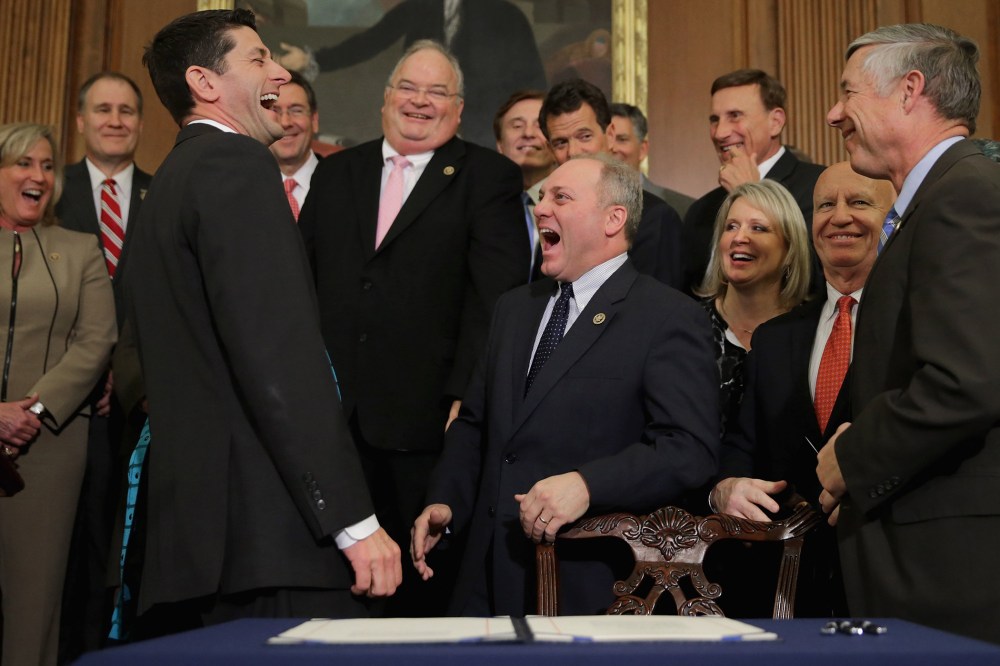At this point, the debate over whether the American mainstream supports the Republicans’ regressive tax plan is over. Surveys have been consistent for months: the public just isn’t buying what the GOP is selling.
Donald Trump boasted the other day that the more Americans learn about the plan, “the more popular it becomes.” That’s wrong to the point of delusion, as evidenced by every recent independent survey. The latest report on the USA Today/Suffolk University poll noted that the GOP tax plan has the lowest level of public support of “any major piece of legislation enacted in the past three decades.”
With this in mind, we can safely look past the question of whether the plan enjoys public support — it obviously doesn’t — and consider two related points: (1) why the plan is so unpopular; and (2) why Republicans don’t care,
On the first point, despite some recent GOP claims to the contrary, tax cuts tend to be well liked. So why isn’t this one? I suspect it’s partly the result of Republicans misreading the political landscape: as the debate got underway, the public said it didn’t want massive tax breaks for big corporations and the very wealthy. GOP policymakers, rejecting the faux populism behind Trump’s pitch, did the opposite of what most Americans requested (and what the party promised).
It didn’t help that Republicans wrote a hyper-partisan bill, lied about it, and pushed their plan at a ridiculous pace without any real scrutiny — making this look more like a heist than a serious attempt at overhauling the federal tax code.
Common sense suggests that, in a democracy, politicians wouldn’t rush to vote for a dramatic and highly consequential proposal that the American mainstream hates. And yet, here we are. At last count, literally every Senate Republican backs the plan, and when the House votes tomorrow, the number of GOP dissenters is expected to be modest, at best. So why is it, exactly, that the Republican majority is so indifferent toward Americans’ attitudes?
There are a variety of explanations to choose from:
1. Maybe Republicans think the public will be impressed that they finally accomplished something. This may seem hard to believe, but GOP policymakers haven’t had a major legislative accomplishment since George W. Bush expanded Medicare in 2003. It’s possible Republicans expect to benefit politically simply by reaching a goal — even if it’s a goal most Americans don’t like.
2. Perhaps Republicans are trying to make donors happy. A variety of GOP officials have been quite candid about pushing their regressive tax plan because their campaign contributors told them to. If given a choice between listening to the American mainstream and listening to donors, it’s possible some Republican policymakers feel they have no choice but to honor the wishes of the latter.
3. Perhaps this is the GOP’s last hurrah. Mother Jones‘ Kevin Drum had an interesting piece the other day, making the case that Republicans are aware of the demographic challenges facing the party — their base is too old and too white in an increasingly diverse country — and they may not control the levers of power again for a while. “That’s why they’re pushing an unpopular tax bill,” Kevin theorized. “That’s why they’re focused like a laser on confirming judges. That’s why they might even take on entitlement reform. They’re going to lose power shortly no matter what they do, so they’re trying to put their stamp on the future while they still have the chance.












